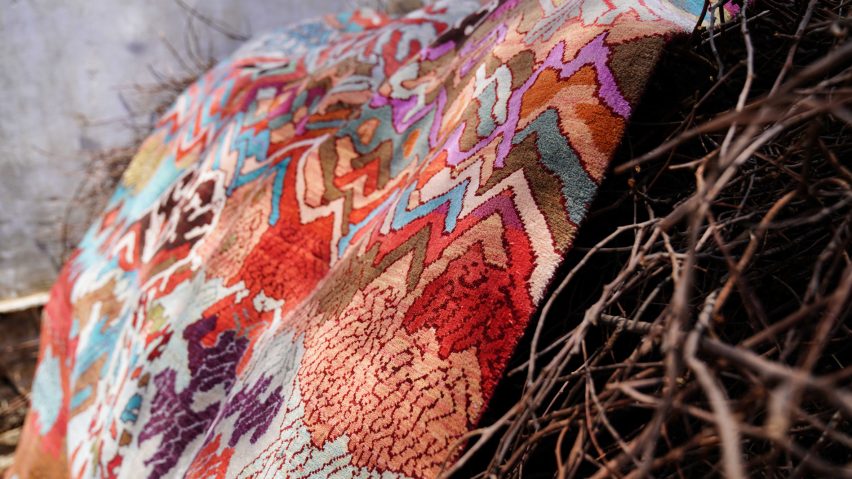
Manju Devi's abstract Aas Pass rug is inspired by rural village life in India
Artisan weaver Manju Devi hand-tied more than 200,000 knots to create this colourful one-off rug for the Jaipur Rug Foundation, which helps communities in rural India to preserve their traditional skills.
Each of the rugs in the foundation's Artisan Originals collection is informed by aspects of its creator's life. Devi's rug, which is named Aas Pass, features abstract patterns and colours based on her surroundings in the village of Dhanota in Rajasthan, India.
Informed by the local practice of covering floors and walls with intricate patterns in cow dung, the design required 222,184 individually hand-tied knots.
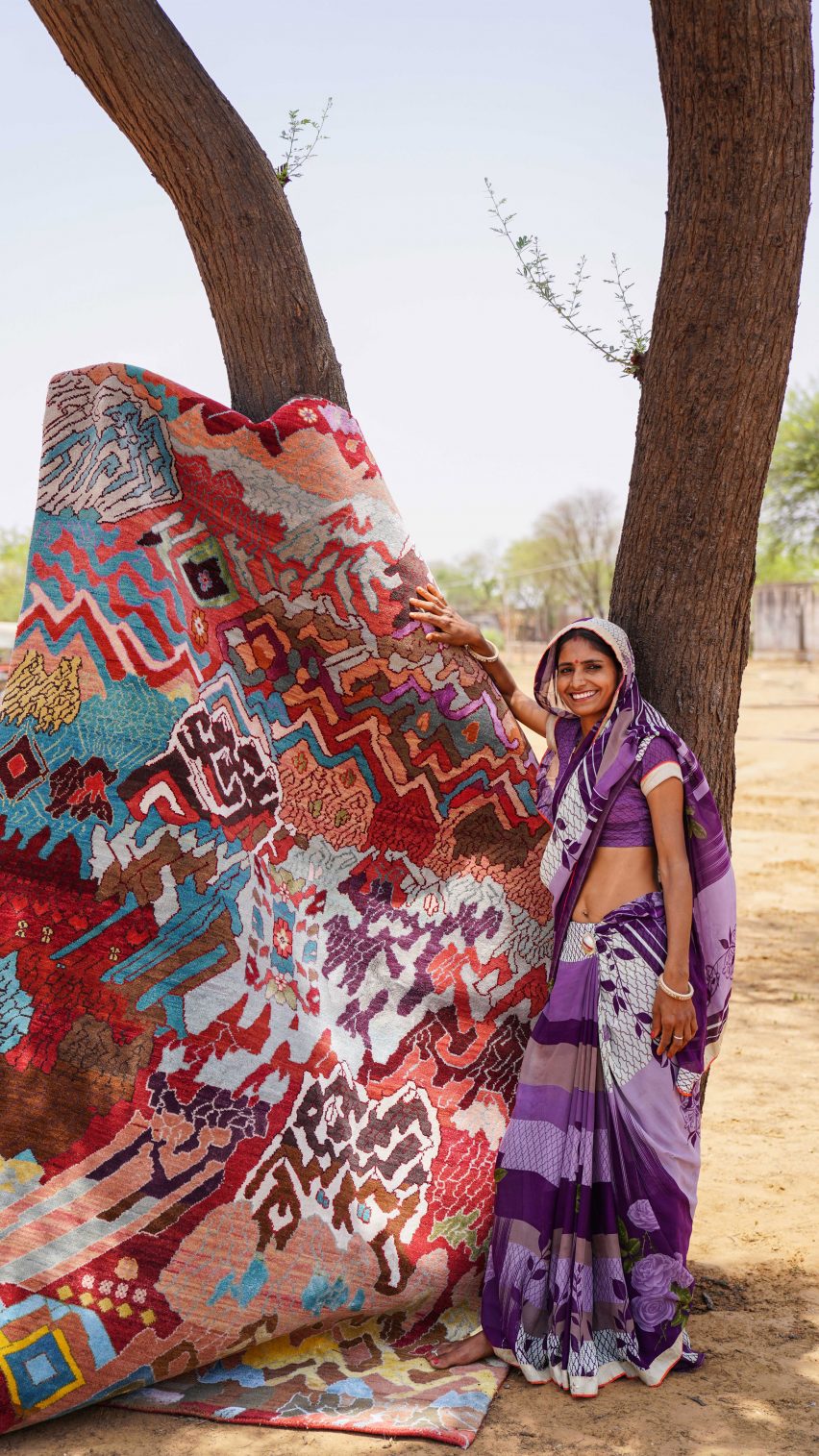
Devi produced the rug as part of a sustainable development initiative overseen by the Jaipur Rug Foundation.
It was established by social entrepreneur Nand Kishore Chaudhary in 1978 to provide artisans in remote parts of India with job opportunities.
The organisation's Artisan Originals collection promotes a two-pronged approach to sustainability that deals with the need to reduce waste, as well as supporting individuals living in difficult circumstances.
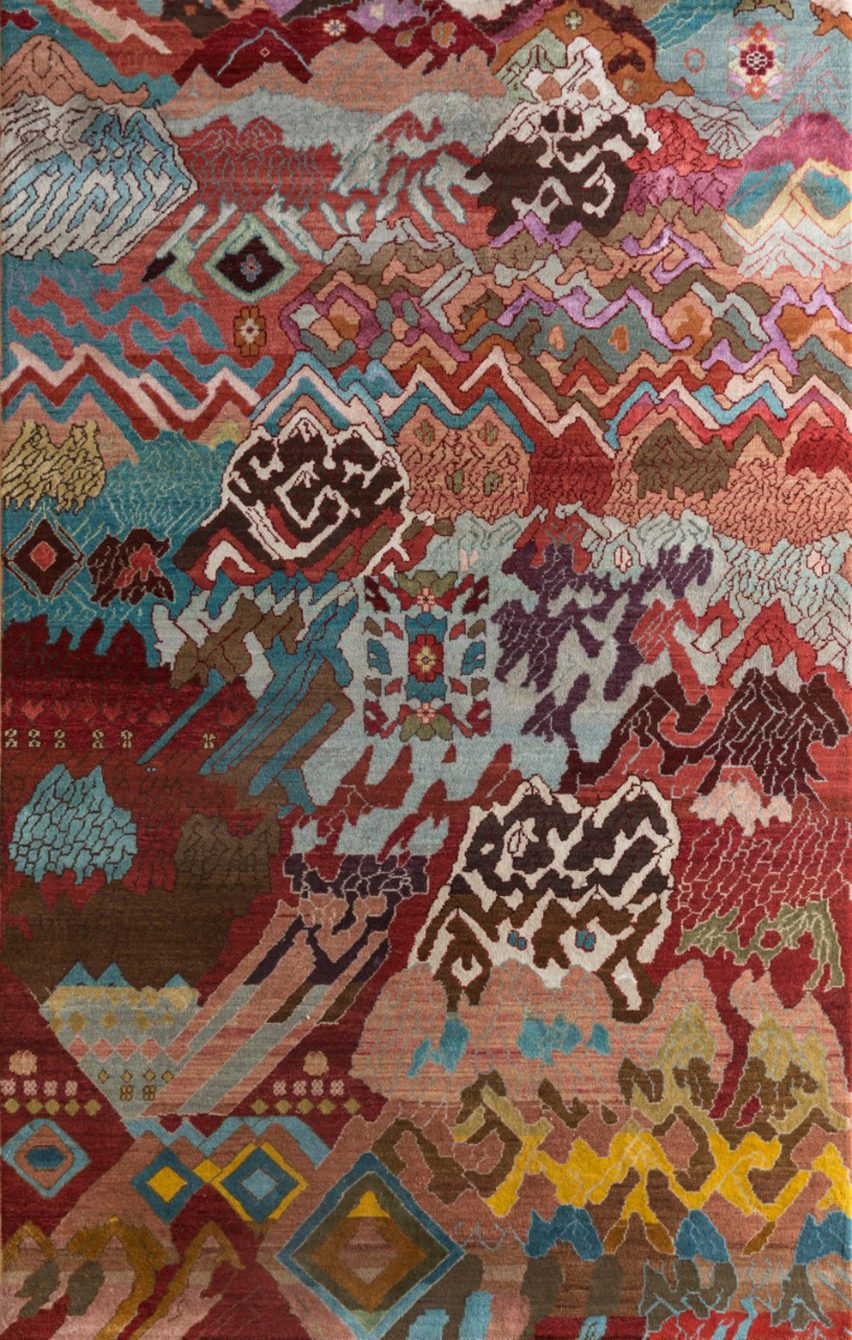
The project is focused on the region of Rajasthan and allows artisans from this region to apply their skills and demonstrate their creativity by designing their own rug.
All of the rugs in the collection are unique and are made using yarn left over from the foundation's supply chain.
The use of surplus hand-spun yarn also helps to determine the colour palette used to create the unique designs.
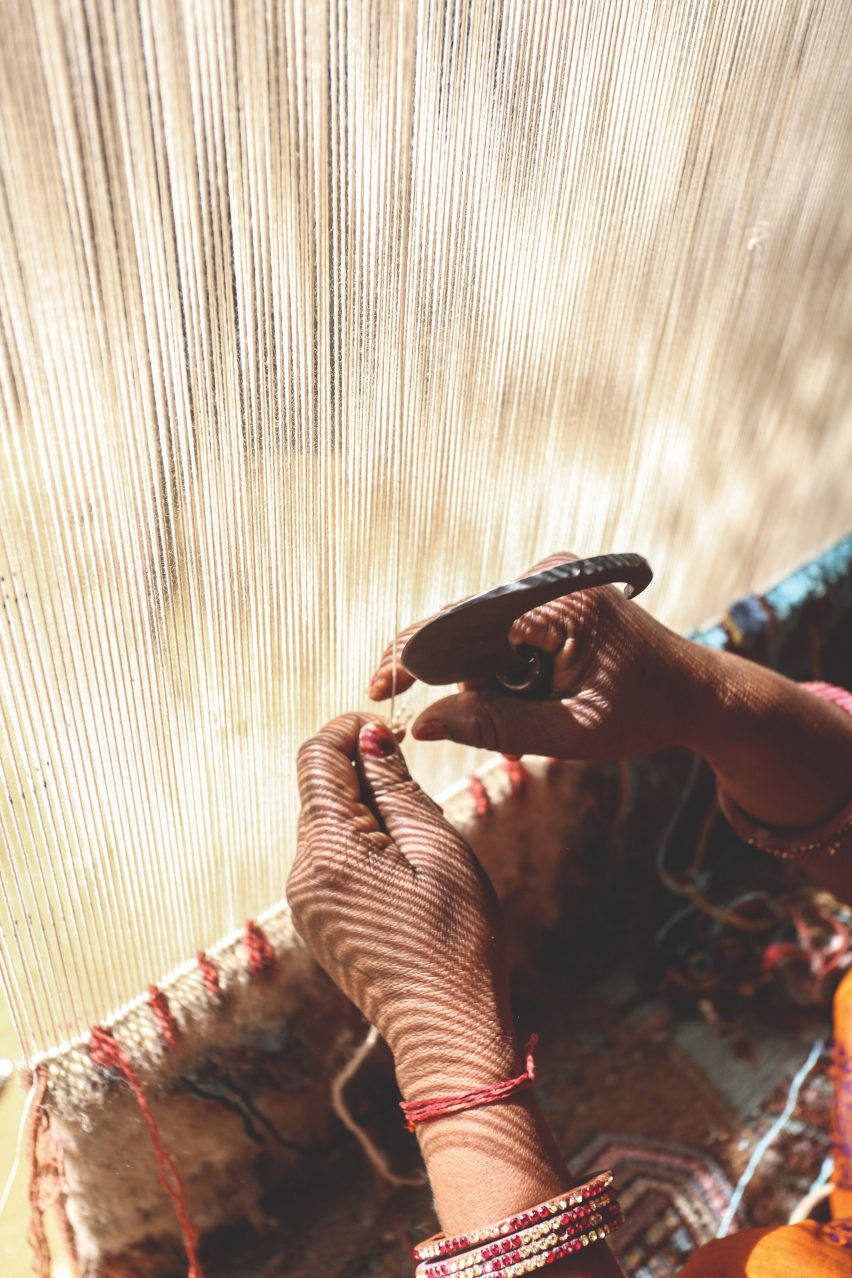
"Through the Artisan Originals initiative, rural men and women who have either no education or just primary education have stunned the world with original designs that compete with professional designers and mega design houses on the global stage," said the foundation.
Devi's rug features on the shortlist for the sustainable design category at the Dezeen Awards 2019, alongside a running shoe made from fully recyclable plastic, and a collection of coffee cups made by growing vegetables in moulds.
Devi and the other creators of the Artisan Originals rugs are typically employed by other companies as low-wage workers.
As well as improving their economic circumstances, the Artisan Originals project has helped the weavers achieve greater recognition within their communities, and on a global level.
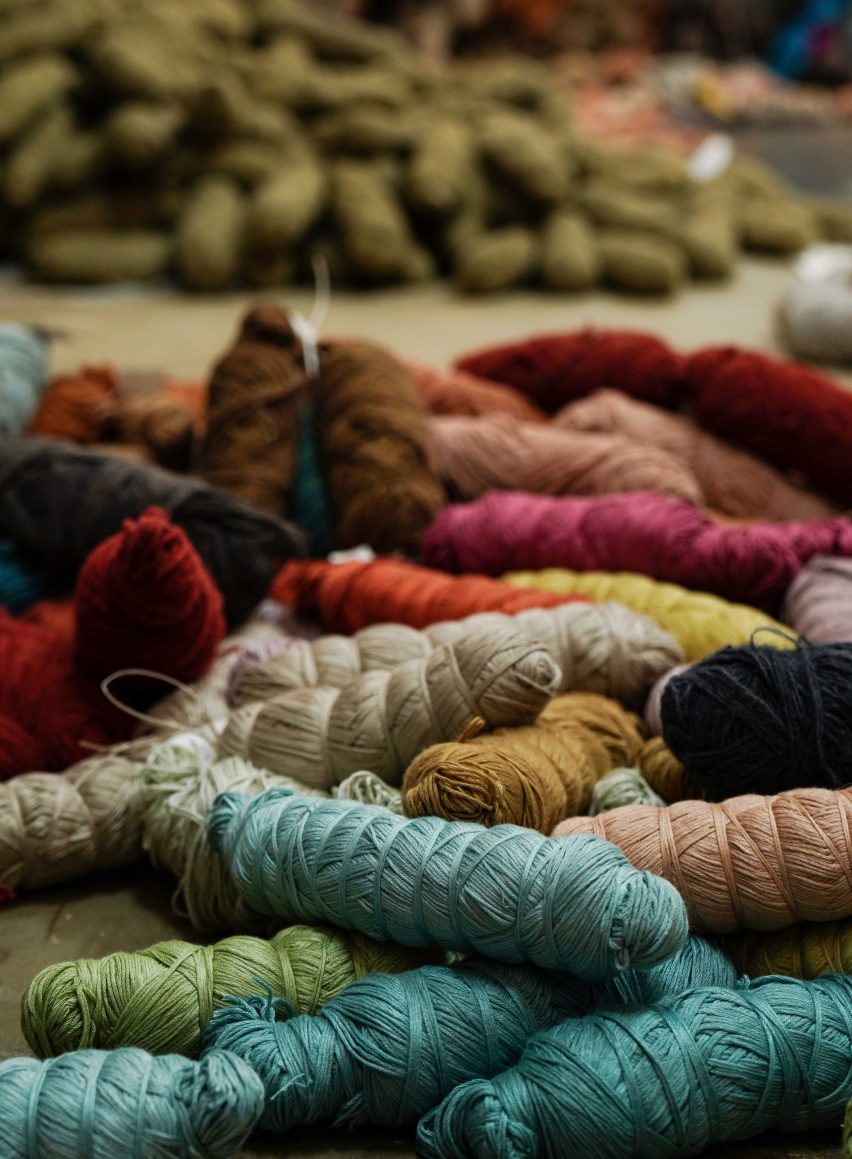
"Through this initiative, the most discriminated section of society that is stereotyped as ordinary uneducated villagers have proven that they have extraordinary abilities," said Jaipur Rug Foundation.
"It is a step towards keeping alive the dying art of carpet weaving," it suggested, adding that the project has "renewed the passion for weaving and given self-confidence and recognition to the weavers".
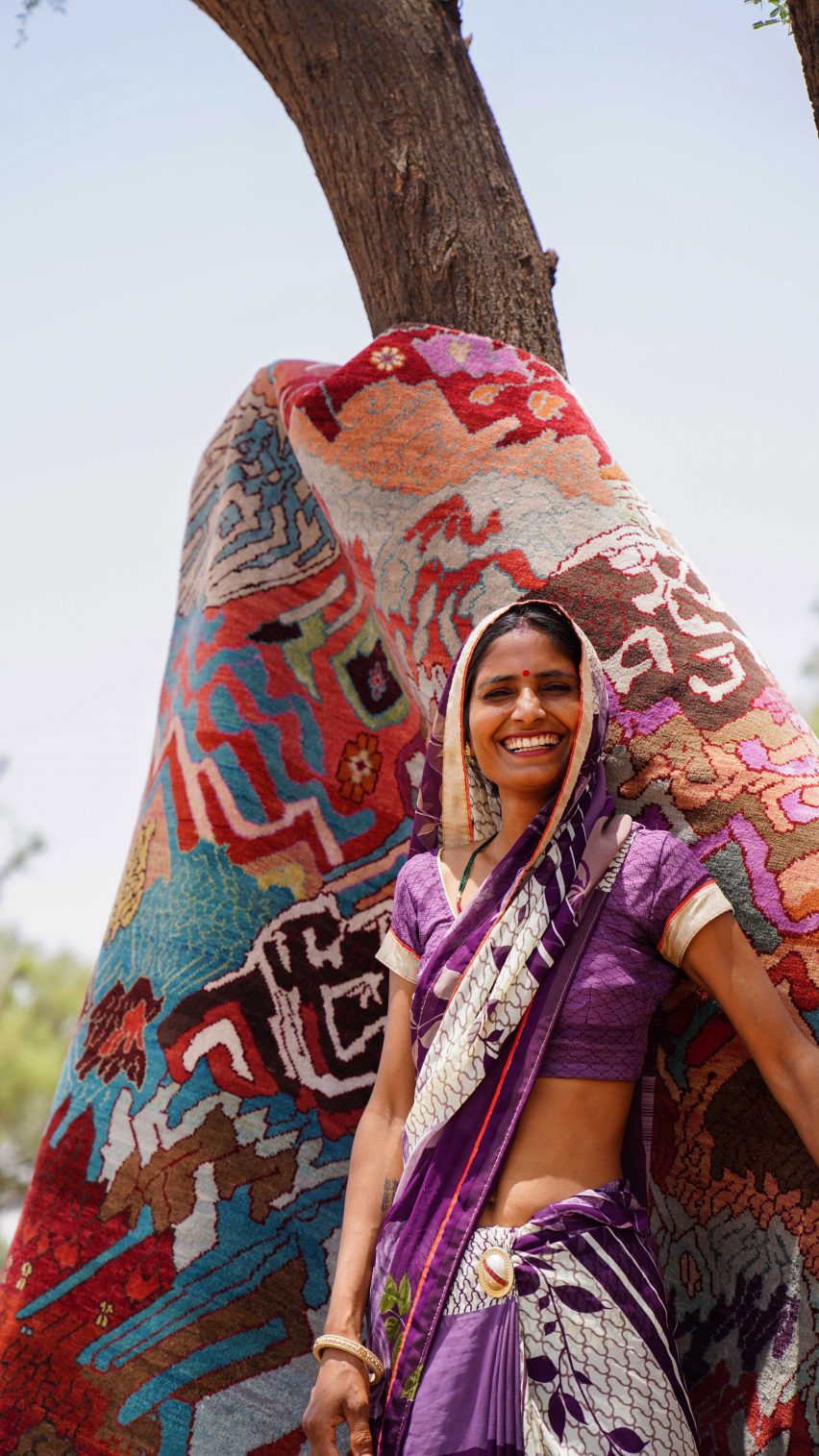
Other designers working alongside traditional weavers include London studio Raw Edges, which collaborated with a women's development project in India to create a collection of rugs that celebrate the random stitching usually hidden on the rear of embroidered items.
Italian manufacturer CC-Tapis also used a traditional Tibetan rug-making technique to develop its Spectrum collection of rugs, which was represented on the longlist for the Dezeen Awards 2019 by Patricia Urquiola's Fordite design.